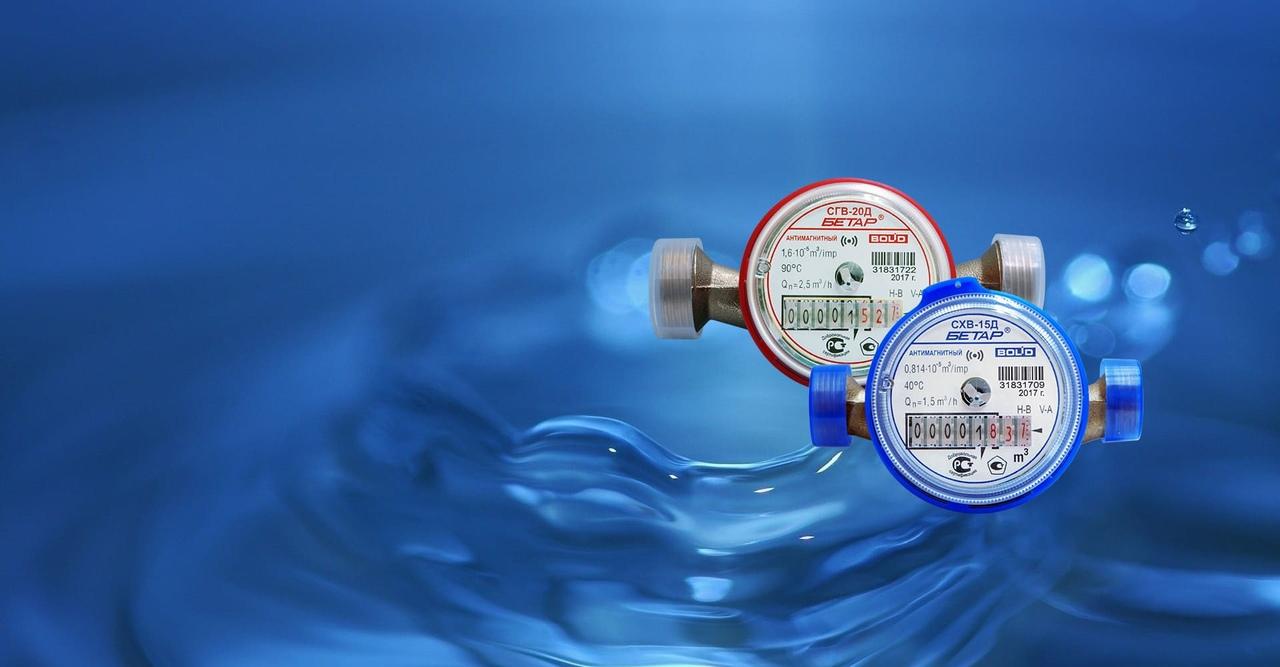Access to safe drinking water is essential for sustaining life. With the growing population and urbanisation, the demand for water is increasing rapidly. At the same time, water resources around the world are under severe stress due to factors like climate change, pollution, overexploitation etc. In such a scenario, it has become imperative for utilities and citizens to use water resources judiciously. Water meters play a vital role in enabling efficient water management by helping track water usage.
What is a Water Meter?
A water meter is a device used to measure the quantity of water used by residential or commercial properties that are supplied with water connections. Modern water meters function similar to energy meters and work on the principle of measuring the volume of water that flows through the pipe. There are various types of water meters available based on the technology used - disk type, turbine type, multi-jet, ultrasonic etc. No matter what technology it uses, the basic purpose of a water meter remains the same - to accurately record the volume of water consumed over time.
Importance of Water Meters
Water meters serve multiple important purposes both for the water utility providers as well as customers. Some key benefits of using water meters include:
- Enable Billing Based on Actual Consumption: With meters installed, utilities can bill customers based on their actual water usage rather than using a flat rate system. This ensures fair billing for all.
- Promote Conservation: When users are aware that they are being billed based on consumption, it encourages more judicious use of water. Water meters help create water conservation awareness.
- Detect Leaks: Any discrepancies between usual consumption and the meter reading could indicate leakage issues within the property that need addressing. Meters thus help detect and fix leaks to save water.
- Improve Revenue Collection: Metering and billing based on consumption enhances revenue generation for water utilities through accurate tracking of water distributed. This helps strengthen their financial viability.
- Support Planning and Decision Making: Aggregate meter data provides metrics to utilities for analyzing demand patterns, loss assessment, network management, infrastructure planning etc.
Installation and Maintenance
Proper installation and regular maintenance of meters is important to ensure their accurate functioning over long term. A few best practices in this regard are:
- Installation by Authorized Plumbers: Only certified plumbers trained in meter installation standards must carry out the job to avoid technical glitches.
- Accessibility: Meters should be installed in easily accessible locations for reading and repairs when needed.
- Protection from Damage: Meters must be protected from potential external impacts through secure housing using meter boxes/pits.
- Periodic Testing: Utilities must run periodic tests to verify meter accuracy and catch any faults early. Replacement/repairs as needed.
- Data Logging: Advanced meters with loggers can remotely transmit consumption data, doing away with manual reads and associated errors.
Addressing Consumer Concerns
While Water Meters are undoubtedly important, some consumers express concerns around frequent high billing, malfunctioning meters etc. Utilities need to address these concerns properly:
- Clarify Tariff Slabs to Avoid Shock: Unusually high bills often occur due to slab-based tariff structure. Utilities must clearly explain different tariff slabs to users.
- Facilitate Meter Testing: Consumers must be empowered to get meters tested from authorized labs in case of suspected faults, without hassles.
- Install Pre-Paid Meters in Hardship Cases: For lower income households unable to pay frequently, prepaid meters offering greater control and budgeting can be an option.
- Raise Awareness on Water Conservation: Along with meters, focused IEC campaigns reminding users about importance of saving water can alleviate concerns around billing increases.
With judicious use of water resources becoming imperative globally, water meters have emerged as a crucial tool enabling more efficient and equitable water management. While important considerations need addressing around their installation and functioning, water metering undoubtedly promotes greater water security if implemented with focus on educating consumers and building public support.
Get more insights on this topic: https://www.newsanalyticspro.com/liquid-assets-the-role-and-benefits-of-water-metering/
Explore more information on this topic, Please visit: https://coolbio.org/emergence-of-online-clothing-rental-market/



